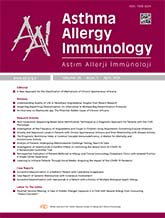


Objective: Urticaria patients possess a significant demand for understanding their condition, a need that traditional patient-reported outcome measures fail to gauge accurately. This social media listening (SML) study aimed to assess the impact of urticaria on patients` expressions on various social media platforms (SMP).
Materials and Methods: Using keyword-based search, a social media data scraping tool was used to identify all publicly available social media posts on urticaria. The content was manually curated to analyze and map psychological aspects with descriptive statistics applied on aggregated findings. Results were compared as pre-COVID-19 period and COVID-19 period.
Results: Overall, 34242 content (8763 content by 5238 unique users in the pre-COVID-19 period and 25479 content by 14546 unique users in the COVID-19 period) about urticaria were identified. X (Twitter) was the most frequently used (44%) SMP. Itching (14383 content, 42%), redness (11348 content, 33%) and swelling (5314 content, 16%) were the most frequently posted distressing symptom. Common patient expressions of symptoms included `pain`, `getting bored`, `embarrassment`, and `helplessness`. Chemical cleaners (4553 posts) and stress/upset (4809 posts) were the most common causes of urticaria from the patients` perspective, in the pre-COVID and COVID-19 periods, respectively. Patients mentioned that treatment of urticaria is a long and tiring process, and often try to manage their urticaria by avoiding triggers.
Conclusion: Our SML analysis showed the severe emotional impact of urticaria on the patients. The COVID-19 pandemic influenced access to care and patient expression about the disease. Understanding these challenges is crucial for healthcare professionals and organizations aiming to effectively address and support individuals with urticaria.